Prominent Iranian lawyer imprisoned for criticising government
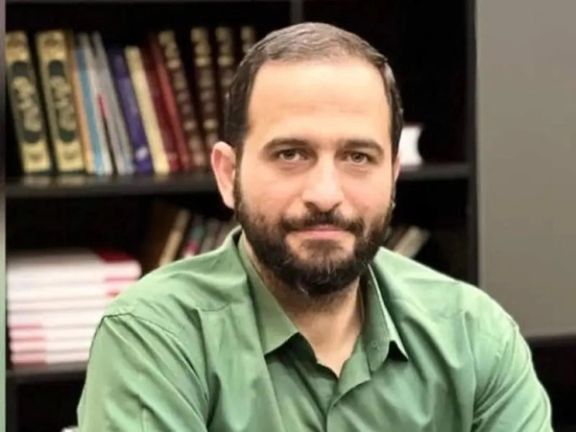
Iranian lawyer and rights activist Mohsen Borhani has been imprisoned for speaking out against the government.

Iranian lawyer and rights activist Mohsen Borhani has been imprisoned for speaking out against the government.
During a speech during Pezeshkian’s presidential election campaign, he referred to the suppression of Iran’s security forces' use of “batons, electric shockers, and pellet bullets” during the nationwide 2022 uprising sparked by the death of Mahsa Amini in morality police custody.
Borhani was transferred to prison to serve a prison sentence according to Iran's judiciary media outlet, Mizan on Saturday.
"Convicted earlier during the handling of a legal case in the judicial courts, Mohsen Borhani's sentence was finalized, and he was subsequently summoned to prison to serve his sentence," Mizan wrote.
Last August, a joint case by multiple Iranian security and intelligence institutions was filed against Borhani following his criticism of the government for suppressing citizens, especially women flouting hijab laws.
He was also fired from his job at Tehran University amidst a purge of professors supporting the protests.
At the time, in a post on X, he announced that among those who had filed a case against him were Iran's Islamic Revolutionary Guard Corps (IRGC) Intelligence Organization and a member of the Guardian Council, among others.
"How many against one?" he added.
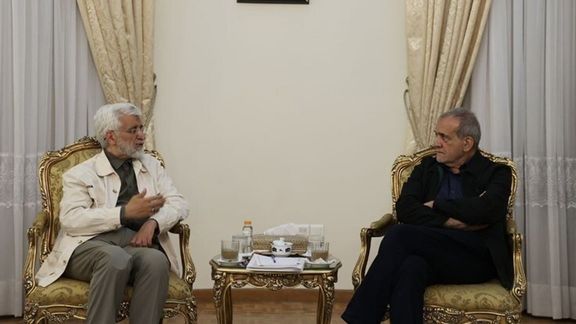
Iran’s defeated presidential candidate Saeed Jalili visited president-elect Masoud Pezeshkian’s office on Saturday night, less than one day after the election results were announced, where the two held a meeting.
Media in Tehran reported that in this “cordial meeting,” Jalili once again congratulated Pezeshkian on his election and outlined his views on the most important issues facing the country and the solutions to address them.
Jalili who was the candidate of so-called “revolutionary forces” insisted during the election campaign that he was the only candidate with comprehensive plans for the country. His ideas centered on Iran’s self-reliance and trade with friendly countries such as Russia.
President-Elect Pezeshkian reportedly told Jalili, “Having a plan is not the only condition for success; employing knowledgeable, skilled, and dedicated individuals is essential to ensure the effective implementation of those plans. “
Pezeshkian’s predecessor, Ebrahim Raisi, often faced criticism for appointing officials based on ideological credentials, favoring "revolutionary forces," particularly members and supporters of the ultra-hardliner Paydari party. In contrast, Pezeshkian has pledged to prioritize meritocracy, emphasizing the qualifications and dedication of candidates for top government positions.
However, a lot depends on Supreme Leader Ali Khamenei in case of ministers and directors of numerous government agencies in Iran’s sprawling bureaucracy. Khamenei or his office have the final say in military, intelligence, ideological and many economic appointments. Pezeshkian also faces a potentially hostile parliament where hardline politicians hold sway, who will closely scrutinize high-level appointments.
Jalili and his hardline political block were able to fill the Raisi administration with ministers and top managers. He often appeared sharing advice with the president and backed him despite his administration’s obvious failure to improve the battered economy.
Media in Tehran reported that Pezeshkian agreed to receive Jalili’s proposals and ideas, but that could have been more of a show of political courtesy than a genuine desire. Jalili’s isolationist ideas seems contrary to Pezeshkian’s pledges about improving Iran’s international relations and trying to reduce sanctions.
“A few hours ago, I had a meeting with Dr. Pezeshkian, and I told him that we consider it our duty to assist in the path of the revolution, the direction of the country, and the three branches of government, including the newly elected president,” Jalili was quoted as saying.
The key phrase here is “the direction of the country” for Jalili, who is steadfast in opposing the West and supporting Khamenei’s foreign policy tenet of relying on Russia and China instead of resolving the nuclear and other issues with the United States and its European and regional allies.
Some speculate that Khamenei allowed Pezeshkian’s candidacy and victory because he has decided to iron out problems with the West, ahead of a possible Donald Trump victory in the US presidential race in November. Others say that he simply wanted new faces representing the Iranian government in order “to buy time” and breathing space considering possible Trump pressures. Whatever the case, Jalili, who has been deeply involved in the Islamic Republic’s national security apparatus for nearly two decades, is here to stay. He may potentially serve as the Supreme Leader’s lever of pressure in both domestic and foreign policy.
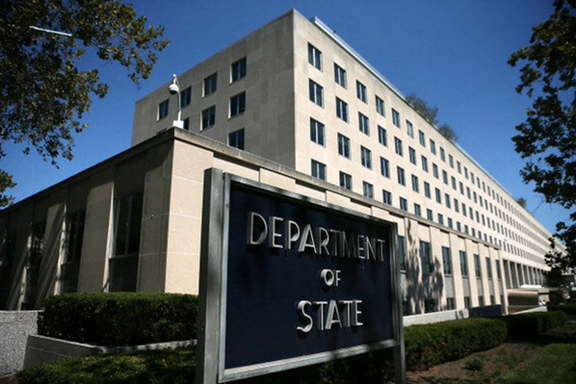
The Iranian elections will not have a major impact on the Biden administration's approach to Iran, a US State Department spokesperson told Iran International on Saturday, a day after moderate Masoud Pezeshkian won the country's run-off presidential vote.
"The elections will not have a significant impact on our approach to Iran... Our concerns about Iran’s behavior are unchanged. At the same time, we remain committed to diplomacy when it advances American interests," the spokesperson said.
The first round of Iran's snap presidential election saw a voter turnout of 39.92%, the lowest in the history of the Islamic Republic. In the runoff votes, the official figures show a 10-percent rise in the number of voters, but still over 50 percent of eligible voters boycotted the election.
"The elections in Iran were not free or fair. As a result, a significant number of Iranians chose not to participate at all," the US State Department spokesperson said. "We have no expectation these elections will lead to fundamental change in Iran’s direction or more respect for the human rights of its citizens."
Several Iranian opposition figures have called on Western powers not to engage with the new government of Iran.
Iran's exiled Prince Reza Pahlavi on Saturday referred to the election as the Islamic Republic's "fraudulent" attempt to legitimize its dictatorship.
In his first post-election speech on Saturday, Pezeshkian thanked Iran's Supreme Leader Ali Khamenei, and said "If it wasn't for him, I don't think my name would have easily come out of these (ballot) boxes."
During his election campaign, Pezeshkian had pledged to his supporters that he would implement the policies set by Khamenei.
He said in one of the televised debate that the U.S. must fulfill all its commitments for Iran to return to the the nuclear deal, known as JCPOA.
Under the 2015 nuclear deal, Iran agreed to reduce its nuclear capabilities in exchange for relief from economic sanctions. In 2018, Trump pulled out of the deal and imposed ‘maximum pressure’ sanctions on Tehran.
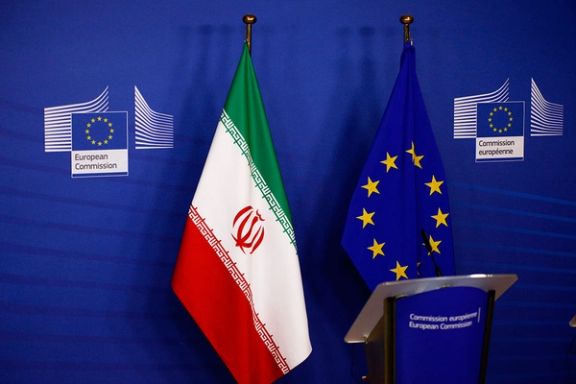
The European Union offered an olive branch to Iran's president-elect Masoud Pezeshkian amid warnings by Iranian opposition figures and dissidents against any "appeasement" with the Islamic Republic's new government.
Nabila Massrali, the spokesperson for Foreign Affairs and Security Policy of the European Union, extended congratulations to Pezeshkian, saying the EU stands ready to engage with his administration.
"We are ready to engage with the new government in line with EU policy of critical engagement," Massrali tweeted on Saturday.
The comments came a few hours after Iran’s exiled prince warned Western powers against appeasing the Islamic Republic's new president, saying the Iranian people would view it as a betrayal of their struggle for freedom.
"The people of Iran will view any attempts to appease this new lackey (Masoud Pezeshkian) as a treacherous offense to their ongoing movement for liberation and a shameful abdication of moral leadership," Prince Reza Pahlavi said in a post on his X account.
The EU’s continued strategy of dialogue and economic interaction despite Iran's "hostage-taking" policy has been widely criticized for its leniency towards Iran and the Islamic Revolutionary Guard Corps (IRGC).
The EU's reluctance to designate the IRGC as a terrorist organization has been a point of contention, particularly in light of the IRGC's involvement in supporting militant groups across the Middle East, including in Lebanon and Syria, and in sponsoring attacks throughout Europe.
Critics argue that by not taking a firmer stance, the EU is allowing the IRGC to operate with impunity, thereby undermining international efforts to secure peace and promote global security.
This policy, often described as appeasement, aims to preserve the 2015 nuclear deal (JCPOA) and manage regional security threats through diplomacy rather than direct confrontation.
However, the approach has faced opposition from the United States and several EU member states, who see it as inadequate in addressing the threats posed by Iran's foreign and military policies.
Supporters within the EU maintain that open diplomatic channels are essential for future negotiations and potential conflict de-escalation, cautioning that more aggressive policies could lead to greater regional instability.
Iran’s former foreign minister Javad Zarif, the architect of the 2015 nuclear deal who has campaigned for president-elect Pezeshkian relentlessly in recent weeks, said on Saturday the world must “listen and engage" with the government of Pezeshkian "in mutual respect, equal footing, and recognition of Iran's role in the world."
In a post on his X account, Zarif said the Islamic Republic is prepared to tackle its challenges, strengthen its relationships with neighboring countries, and reassert its "role in the emerging global order."
The first round of Iran's snap presidential election saw a voter turnout of 39.92%, the lowest in the history of the Islamic Republic. In the runoff votes, the official figures show a 10-percent rise in the number of voters, but still over 50 percent of eligible voters boycotted the election.
Still, Supreme Leader Ali Khamenei claimed victory on Saturday, saying that the nearly 50-percent voter turnout neutralized calls to boycott the elections.
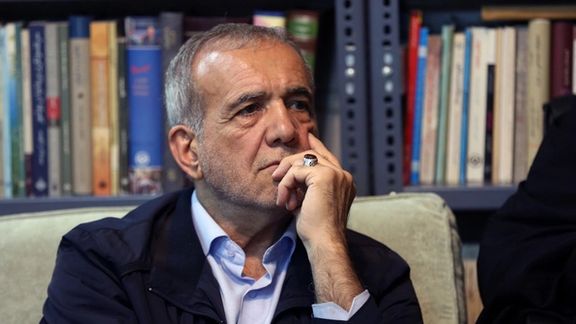
Iran's President-Elect Massoud Pezeshkian began his challenging journey to the presidency just one day after his comfortable victory in the July 5 runoff election.
The Iranian parliament (Majles), which must approve his cabinet appointments, went on a 10-day holiday for the Shiite mourning month of Muharram, which began on Saturday.
An Iranian parliamentarian said that after the ten days of mourning, the lawmakers will go on summer holiday and Pezeshkian's introduction to the Majles and his swearing-in ceremony will take place sometime in August. Before that, he needs to officially resign as a member of parliament.
This delay might not be entirely detrimental for Pezeshkian, who previously stated he has no plans or list of cabinet ministers. He now has over a month to formulate a plan and compile a list. So far, none of his campaign advisers, primarily from the centrist Executives of Construction Party and the Development and Moderation Party, seem to have provided him with any plan or list.
In the meantime, it is not clear yet, whether Supreme Leader Ali Khamenei will endorse Pezeshkian's credentials before the mourning period which could well extend to two weeks, or he is going to do it regardless of religious rituals.
On the other hand, on his first day as President-Elect, a news conference with Iranian and foreign reporters planned for Saturday afternoon was cancelled. The news conference was first re-located from a conference center in northern Tehran to an auditorium in south Tehran without giving any reason to the reporters.

While the reporters were making their way from one venue to another, it was announced without giving a reason that the news conference was cancelled. It is not yet clear who arranged the news conference and who cancelled it as Pezeshkian has no staff and chief of staff yet. However, later during the day, pro-reform Emtedad News said that it was cancelled because Pezeshkian had to go to a meeting with Khamenei.
State television reporter Mohammad Hossein Ranjbaran was quoted by Iranian media as saying that during the meeting, Khamenei offered suggestions to the President-Elect. These suggestions may have included advice on addressing questions about foreign policy, including relations with the United States and Europe, and Iran's role in the Middle East.
Some Iranian reporters suspect that the cancellation of the news conference was an attempt to prevent surprises during the meeting with foreign reporters. They believe that those who hastily arranged the news conference intended to throw the inexperienced politician to the media wolves.
During the televised debates, Pezeshkian and other candidates evaded such questions when posed by their rivals. The TV presenters were aware that these topics were off-limits for the candidates, as only Khamenei has the final say in these matters.
Khamenei has assured foreign entities that the new president's tenure will not bring any changes in foreign policy or unexpected surprises for international players. He reiterated in his felicitation message on Saturday that Pezeshkian's mandate is "to continue President Raisi's path" with literally translates into taking no initiative of his own.
Even before the election, the US Department of State said that a change of presidents in Iran will not lead to a change in the country's foreign policy. The DOS reiterated after the elections that “We have no expectation these elections will lead to fundamental change in Iran’s direction or more respect for the human rights of its citizens. As the candidates themselves have said, Iranian policy is set by the Supreme Leader.”
During the weekend, the head of the caretaker government in Iran, Mohammad Mokhber who was visiting Kazakhstan, reassured Russian President Vladimir Putin that no change will occur in Iran's foreign policy as a new president takes office in Tehran.
With all those assurances, Khamenei is likely arranging a series of briefings and introductions for the newly elected president before he dives into the deep end of Iranian politics.

As Masoud Pezeshkian was named Iran's next president, his presidential rivals sent messages of congratulations as the Supreme Leader called for government unity.
Presidential runner-up, Saeed Jalili, Iran's former nuclear negotiator and the ultraconservative contender, congratulated the incoming president. “As before, I consider it my duty to support the new government in overcoming challenges and achieving the nation's development goals,” Jalili stated.
Alireza Zakani, another former contender and Tehran Mayor also congratulated Pezeshkian and recognized the significance of the election as a “testament to religious democracy,” echoing Jalili’s comments and overall state line.
Zakani, who had earlier withdrawn from the race, urged government unity as news of the new cabinet awaits. He stated, "Now, I present all my plans, which have been written with the support of a large group of elites, to the elected president, and knowing the heavy burden of the government, it is expected that the elected president will choose a strong and capable cabinet."
Additionally, former President Hassan Rouhani, a notable supporter of Pezeshkian, extended his congratulations to the first reformist president to be elected in two decades. Rouhani underscored that the people's vote reflected a clear mandate for constructive engagement with the international community and a revival of the 2015 nuclear deal, formally known as the Joint Comprehensive Plan of Action (JCPOA), which was signed during Rouhani’s tenure.
He emphasized that the new administration "is not a continuation of previous administrations", refuting claims by other candidates that Pezeshkian’s government would simply continue his policies. He also highlighted the importance of addressing the concerns of those who abstained from voting, urging the new administration to work inclusively.
As Pezeshkian prepares to take office, he now faces the challenges of a nation grappling with an inflation rate of around 50% with its national currency, the rial, having depreciated 15-fold since 2018 driving millions of Iranians into poverty.
With sanctions causing around $1.2 trillion in damages from 2011 to 2023, experts argue another critical challenge for the newly elected president will be making strategic foreign policy decisions to lift US sanctions.
Amid widespread anti-Islamic Republic sentiment following Iran's 2022 nationwide Woman, Life, Freedom protests sparked by the death of Mahsa Amini in morality police custody, Pezeshkian must now address the country's human rights issues.
This is especially critical given the intensified crackdown on women's rights and mandatory hijab laws, directed by Supreme Leader Ali Khamenei, to whom Pezeshkian has consistently declared loyalty throughout his campaign.
Despite the significant role of the president, the ultimate power in Iran rests with Khamenei who holds authority over all branches of government, including the military and judiciary. Regardless of the president, his influence shapes the direction of the country’s domestic and foreign policies.